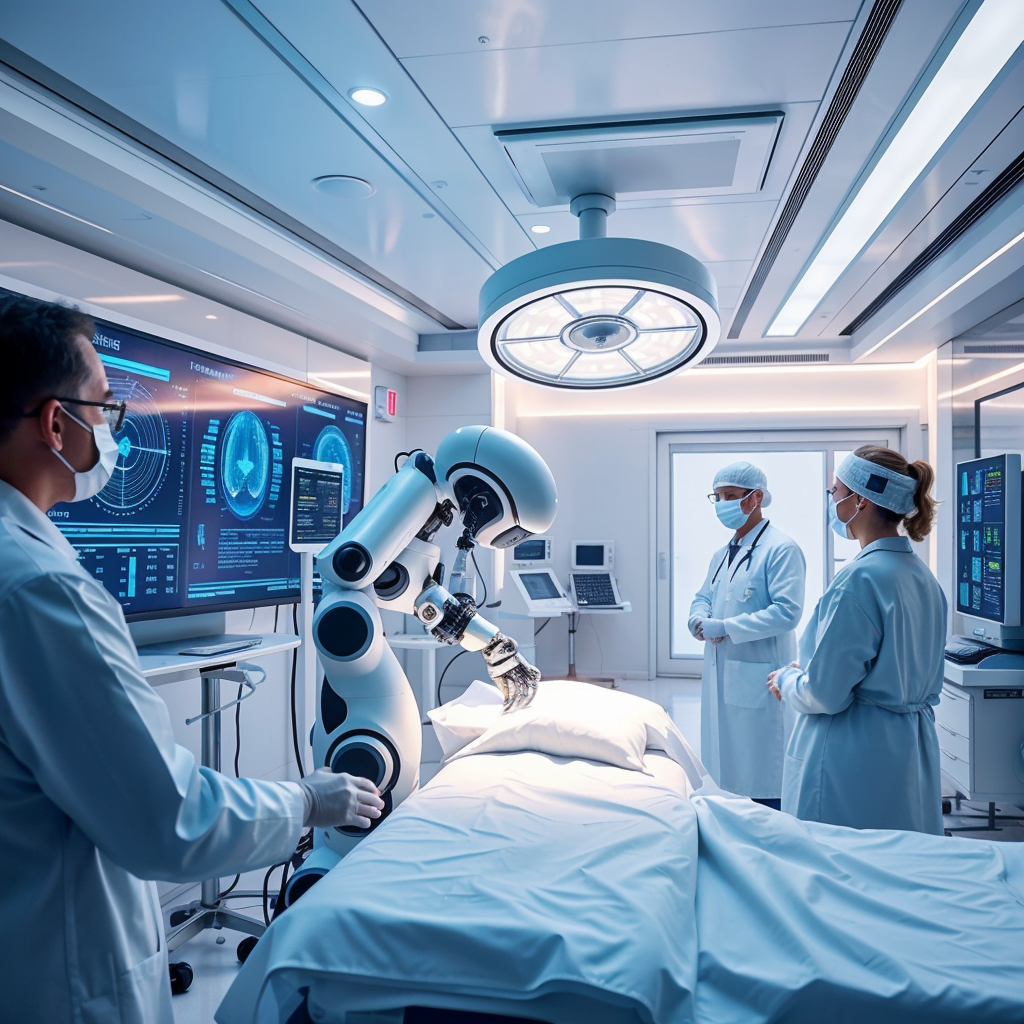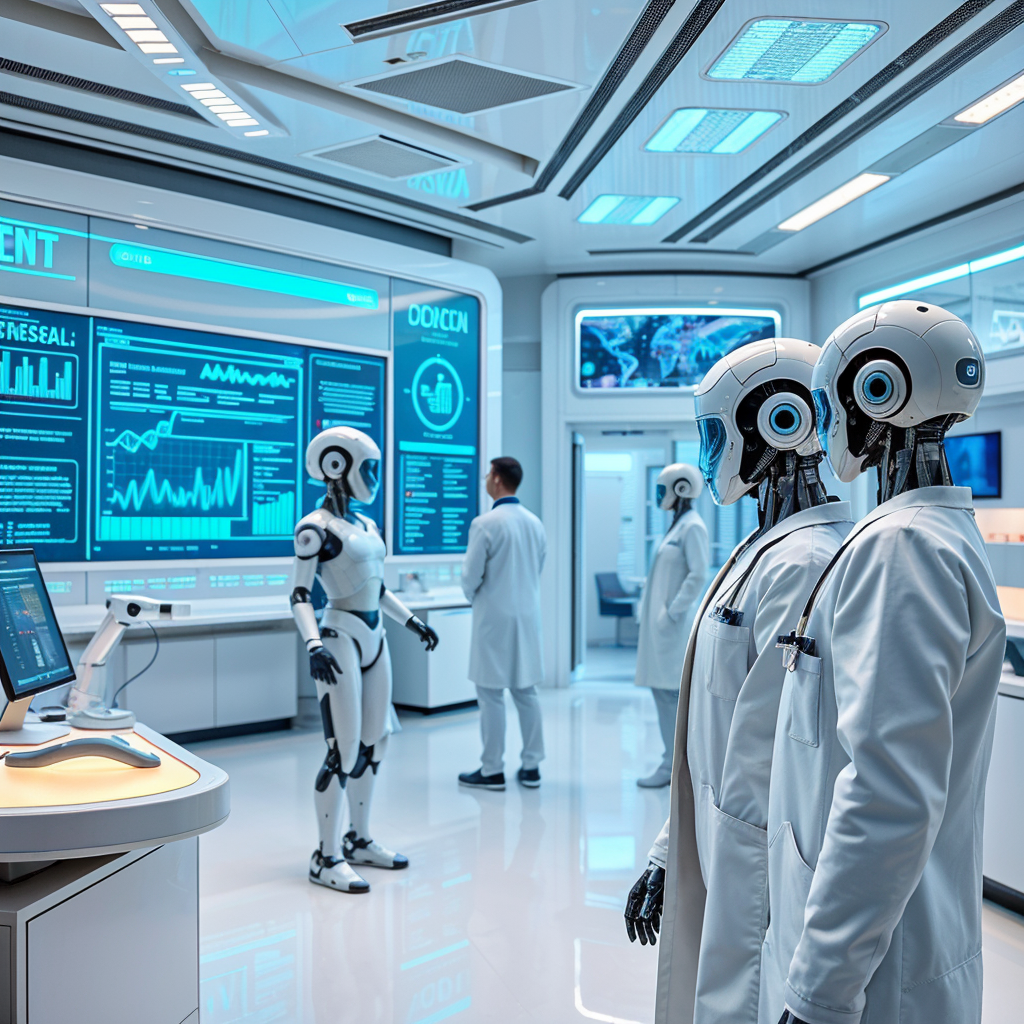Artificial Intelligence (AI) is set to revolutionize healthcare in unprecedented ways. With its potential to enhance patient outcomes and streamline operations, AI is becoming an integral part of modern healthcare. This article delves into how AI is transforming healthcare, its benefits, and the future prospects of AI in this field.
AI’s Transformative Role in Healthcare
AI’s role in healthcare is becoming increasingly significant. It is not only enhancing the accuracy of diagnostics but also improving patient care and operational efficiency. Understanding how AI impacts healthcare can shed light on its future potential.
How AI is Shaping Healthcare
AI is shaping healthcare through various innovations. From predictive analytics to personalized medicine, AI applications are making a difference. These technologies are enabling more precise treatments, faster diagnoses, and better patient outcomes.
Predictive Analytics and AI
Predictive analytics uses AI to analyze data and predict future outcomes. In healthcare, this means forecasting disease outbreaks, patient admissions, and treatment responses. By utilizing historical data, AI can help anticipate and mitigate potential health issues before they become critical.
Personalized Medicine through AI
Personalized medicine involves tailoring medical treatment to individual characteristics. AI enhances this approach by analyzing genetic information and patient history. This analysis helps in developing customized treatment plans, thereby improving efficacy and minimizing adverse effects.
Enhancing Patient Care with AI
AI’s contribution to patient care is profound. From virtual assistants to advanced diagnostic tools, AI is reshaping how healthcare providers interact with and treat patients.
AI-Powered Diagnostic Tools
Diagnostic tools powered by AI are revolutionizing medical imaging. AI algorithms can analyze x-rays, MRIs, and CT scans with high accuracy. This capability aids radiologists in detecting abnormalities early, thus facilitating timely treatment.
Virtual Health Assistants
Virtual health assistants are another AI innovation enhancing patient care. These tools provide patients with instant medical advice and manage routine tasks such as appointment scheduling. By improving accessibility and efficiency, virtual assistants contribute to better overall patient experiences.
Operational Efficiency and AI Integration
AI is also transforming healthcare by improving operational efficiency. Streamlining administrative tasks and optimizing resource management are key areas where AI makes a significant impact.
Streamlining Administrative Tasks
AI streamlines administrative tasks such as billing, appointment scheduling, and claims processing. Automation reduces the workload on healthcare staff and minimizes errors. This efficiency translates into cost savings and improved service delivery.
Optimizing Resource Management
Effective resource management is critical for healthcare facilities. AI tools help in predicting patient volumes, managing inventory, and optimizing staffing levels. By analyzing data trends, AI ensures that resources are used efficiently, leading to better patient care and reduced operational costs.
The Challenges and Ethical Considerations
Despite its benefits, AI in healthcare presents challenges and ethical considerations. Addressing these issues is crucial for the responsible use of AI technologies.
Data Privacy and Security
AI systems rely on vast amounts of health data, raising concerns about data privacy and security. Ensuring that patient information is protected and used ethically is paramount. Healthcare organizations must implement robust security measures and comply with regulations to safeguard sensitive data.
Addressing AI Bias
Bias in AI algorithms can lead to unequal treatment and disparities. It is essential to address this issue by ensuring that AI systems are designed to be fair and inclusive. Regular audits and diverse training data can help mitigate bias and promote equitable care.
The Future of AI in Healthcare
The future of AI in healthcare holds exciting possibilities. As technology advances, AI will continue to play a crucial role in improving patient care and operational efficiency.
Emerging AI Technologies
Emerging technologies like natural language processing (NLP) and AI-driven drug discovery are set to further enhance healthcare. NLP can analyze patient records and streamline clinical documentation, while AI-driven drug discovery accelerates the development of new treatments.
Collaboration for Success
Successful integration of AI in healthcare requires collaboration between AI developers and healthcare professionals. By working together, they can ensure that AI tools meet clinical needs and contribute to better patient outcomes. This partnership is key to maximizing the benefits of AI in healthcare.
Conclusion
AI is transforming healthcare by enhancing patient care, improving diagnostic accuracy, and increasing operational efficiency. As AI technology continues to evolve, its role in healthcare will expand, offering new opportunities for better health outcomes. Embracing AI’s potential while addressing its challenges will lead to a more effective and efficient healthcare system.







